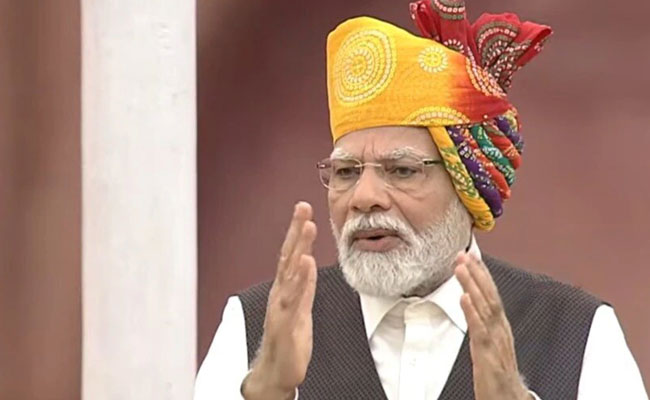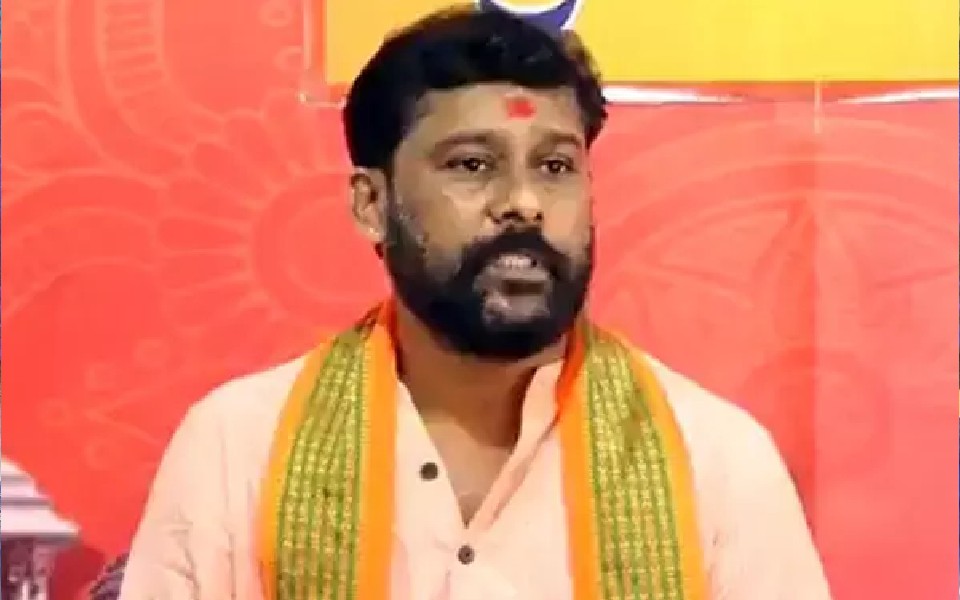New Delhi (PTI): Prime Minister Narendra Modi on Tuesday said the government will soon launch a scheme to provide relief in bank loans to those dreaming of their own house in cities.
Addressing the nation on the 77th Independence Day, Modi said his government will soon launch the scheme for middle-class families living in cities but do not own a house.
The prime minister launched the Pradhan Mantri Awas Yojana Urban (PMAY-U) -- a flagship Mission of the Central government -- on June 25, 2015.
The Housing and Urban Affairs Ministry has been implementing the PMAY-U scheme.
According to the ministry, around 1.18 crore houses have been sanctioned under PMAY (Urban) till July 31 this year, out of which 76.02 lakh have been delivered to the beneficiaries.
Let the Truth be known. If you read VB and like VB, please be a VB Supporter and Help us deliver the Truth to one and all.
New Delhi, Mar 5 (PTI): A 24-year-old SUV driver "intentionally" ran over a security guard posted at Delhi airport’s terminal-3 after he objected to his honking, an official said on Monday.
The accused, identified as Vijay alias Lale, was arrested under attempt to murder charges, he said.
The incident took place on Sunday morning when Rajiv Kumar, working as a security guard, came to Mahipalpur by a cab. He got from the vehicle and was crossing the road to reach his home when Vijay, driving Mahindra Thar, starting blowing his horn loudly from behind, a senior police officer said.
Upon objecting, the accused threatened Rajiv that if he crosses the road he would crush him with his SUV, police said.
According to the CCTV camera footage, which surfaced online, the Thar driver was seen running over Kumar, dressed in security guard’s uniform with a baton, twice publicly.
Kumar suffered multiple crushed and fracture injuries over legs and ankle.
"Lale, a resident of Rangpuri, was arrested and the SUV allegedly used in the crime was seized," Deputy Commissioner of Police (Southwest) Surendra Choudhary said in a statement.
An FIR was registered at Vasant Kunj South police station and an investigation was launched, said the DCP.
He said that the team examined footage from the crime scene and surrounding areas which helped them identify the offending vehicle's registration number. The footage showed the SUV hitting the victim, after which it fled from the spot.
They conducted an extensive search of CCTV footage at and around the vicinity of the scene of crime. The offending vehicle was identified through CCTV footage and the owner of the vehicle was traced.
"A notice was served under sections 133 of the Motor Vehicle Act to the owner of the vehicle. During investigation offender driver Lale (24) was arrested," he said, adding that further investigation is under progress.
A security guard was run over by a Thar SUV in Delhi’s Vasant Kunj area after he asked the driver not to honk. The guard suffered multiple fractures. The entire incident was caught on #CCTV , and police have arrested the driver pic.twitter.com/jeifJhg1UZ
— Utkarsh Singh (@utkarshs88) May 5, 2025





